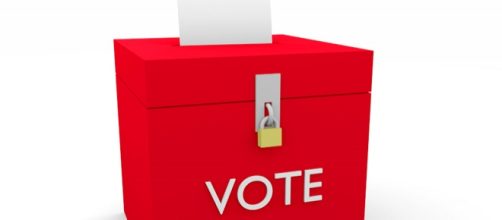As a life-long Democrat, I find this a difficult time. I am thrilled that Bernie Sanders won 36 delegates to Hillary Clinton’s 32 as a result of primaries in Iowa and New Hampshire, but I am embarrassed and frustrated by my party’s anti-democratic practices. The Democratic Party arbitrarily empowers elected officials and unelected party leaders with “superdelegate” privileges.
Superdelegates history
In 1968, the Democratic Party changed delegate selection so that “the composition of the convention [was] less subject to control by party leaders and more responsive to the votes cast during the campaign for the nomination.” In response to the loss of power, in 1984 party leaders implemented superdelegates.
14% of national convention delegates were assigned by the most powerful members of each state’s party apparatus, rather than voted in democratically; that number has risen to 20%.
Conflation of bound and unbound delegates
I didn’t like it when superdelegates were instituted and I don’t like it today when the Clinton campaign, not known for its ethics, has coerced or otherwise produced a 481 to 55 lead over Sanders in pledged support by superdelegates. The media, showing favoritism toward Clinton, presents the non-bound superdelegate count combined with the count of democratically chosen bound delegates, glossing over the difference. Such deceptive practices by mainstream media make it strikingly clear that they are delivering propaganda in support of the favored choice of our corporate masters.
Suppression of grass roots efforts
Clinton’s former campaign chair and current chair of the Democratic National Committee, Debbie Wasserman-Schultz, has drawn national attention to her bias in favor of Clinton. Wasserman-Schultz explained the rationale behind super delegates explicitly: “Unpledged delegates exist, really, to make sure that party leaders and elected officials don’t have to be in a position where they are running against grassroots activists.”
Defying the voters
What is most appalling about superdelegate endorsements is that they defy the will of the voters. In New Hampshire, Sanders beat Clinton by an astounding 22%. Of the 24 democratically awarded delegates, Sanders got 15, Clinton 9.
But of the 8 undemocratically-assigned superdelegates, 6 have come out for Clinton.
Pride in unearned advantage
Senator Patrick Leahy is proud to claim his privilege to support Clinton as a superdelegate, regardless of how the primary turns out in his state. “You know, the Leahys have been in Vermont since the 1800's.” He promised to use his powerful position to support Clinton; his status as a long-time resident annoints him to “keep [his] word,” regardless of how citizens vote.
This claim of privilege was repeated by Cordelia Lewis-Burks, a superdelegate from Indiana. Having pledged support to Clinton before the primary, she complained when criticized: "It's very aggravating to be bashed on my own computer by these people who it's probably the first time they've ever voted.
I've been in the trenches since I was 20." She rationalizes her power, saying that she has earned it due to her long service as a party activist. She believes that “first time voters” do not deserve to have the same vote that she does; Lewis-Burks has been given a much more powerful vote for the nominee of the party than regular voters have.
The antidote
This is how the elites roll – they are anti-democratic. They maintain privilege by whatever means are at their disposal. Clinton is a prima facie example of an anti-democratic leader. Her control of super-delegates in the Democratic Party exemplifies her lack of regard for democracy in service to the people of the nation. She serves herself and her powerful and wealthy friends.
Luckily, Bernie Sanders is the antidote to the corruption of our democratic principles. The task in front of his volunteers is challenging, but his base is super-charged with passion and I predict they/we will get the job done.

